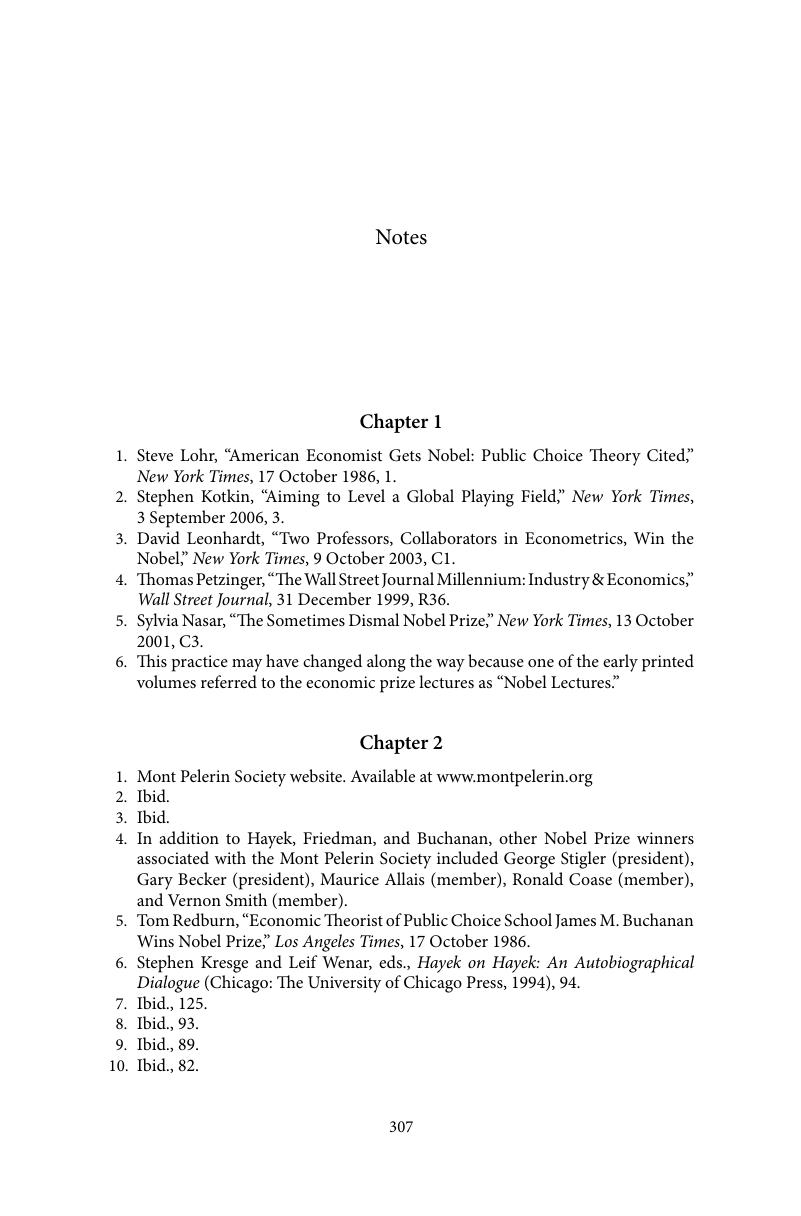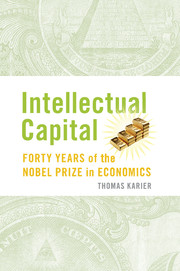Book contents
- Frontmatter
- Contents
- Preface
- Economic Nobel Laureates
- 1 An Economic Prize
- 2 Free-Market Economics
- 3 Micro: The Chicago School
- 4 Stock Market Casino
- 5 More Micro
- 6 Behaviorists
- 7 Keynesians
- 8 Classical Revival
- 9 Inventors
- 10 Game Geeks
- 11 General Equilibrium
- 12 A World View
- 13 Numbers Guys
- 14 History and Institutions
- 15 Reshaping the Prize
- Notes
- Index
- References
- Frontmatter
- Contents
- Preface
- Economic Nobel Laureates
- 1 An Economic Prize
- 2 Free-Market Economics
- 3 Micro: The Chicago School
- 4 Stock Market Casino
- 5 More Micro
- 6 Behaviorists
- 7 Keynesians
- 8 Classical Revival
- 9 Inventors
- 10 Game Geeks
- 11 General Equilibrium
- 12 A World View
- 13 Numbers Guys
- 14 History and Institutions
- 15 Reshaping the Prize
- Notes
- Index
- References
Summary

- Type
- Chapter
- Information
- Intellectual CapitalForty Years of the Nobel Prize in Economics, pp. 307 - 346Publisher: Cambridge University PressPrint publication year: 2010

